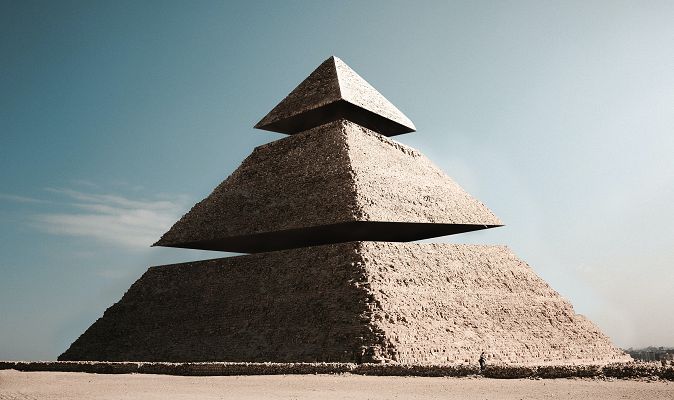The way that democracies around the planet have been structured in the past centuries has allowed greater access to power, decentralization of authority, and an advancement of the human civilization. However, by and large, today’s systems, and in particular the American system, struggle based on one simple flaw— lack of highly experienced, intelligent brain trust.
Noam Chomsky, the esteemed Philadelphian intellectual, posited that the way US society, and many nations’ societies, work today is through the establishment of a class society, with an elite, governing a generally misled, misinformed, underinformed majority populace— a power elite and a proletariat. The power elite has served in much the same function as for all of human history under various names, including czar, duke, mandarin, praetor, and magistrate. The clear stratification of sociopolitical structures has created countless cults and elite cliques obsessed with guarding the reigns of power.
The tendency for power stratification was certainly true through antiquity, the agricultural and industrial revolutions, and into the 20th century. With the advent of information technology like the Internet and social media, there is great capacity and a pressing need for radical change. Similarly, great advances in health care and quality of life have ensured that humans live longer lives, with average lifespans having increased to over 70 in most societies on the planet, many over 90. The pyramidal stratification of power is no longer conducive to stable, prosperous societies. Regardless of whether a society is authoritarian or liberal, totalitarian or democratic, powerholders must vary to a greater degree.
The modern sociopolitical structure in the United States involves a group of people who have attained the highest rungs of the power ladder and then stayed there. Career politicians in Washington often are incentivized to sit in their positions for decades. This has created a structure known in the USA as the Deep State, the Uniparty, or the Establishment. Federal officials have no risk of being replaced in the typical election cycle. They are bureaucrats, infesting the organizations and industries in which they specialize with a corrosive influence that tends towards partisanship, graft, nepotism, and corporatism— especially with federal investigative bodies that do not pay close attention to monitoring and policing good governance within federal institutions.
This pyramidal structure, the old system, is envisioned by the Great Pyramid, often depicted in conspiratorial or symbolic ways, presenting the image of society with the ruling classes at the top in ever-narrowing levels. This is, naturally, an authoritarian and non-democratic model, tending towards exclusionary, stagnant, corrosive sociopolitical power structures. There are few leaders, and hence, few with leadership experience. The number of people who pass through the eye of leadership and give up the reigns of power is few. There is an incentive for individuals to cling to power in this system because the only other rungs are below the powerholders’ position.
Times have changed. Rather than a society of few leaders, we should strive to have one with many holding leadership experience— a magisterial emerati. Emeritus designates someone holding an honored position, such as a professor emeritus in academia. In this sense, a better way to depict the sociopolitical structure is by the illustration of an hourglass. The population is split into three general categories— those without leadership experience in the bottom conicular, those currently holding the reigns of power at the chokepoint of the hourglass, and the magisterial emerati in the top inverted conicular.
Through this way of approaching sociopolitical structure, consider the prevailing Great Pyramid system in context. The power holders in are at the chokepoint between the top and bottom, between those with leadership experience and those with none. Between the informed and sophisticated and the clueless masses. In the current paradigm, too many people get stuck at the chokepoint and seek to stay there. It is alluring to be in power— there are many seemingly great benefits of being in the limelight and having perceived control. But we should not, as societies, be encouraging, incentivizing, and allowing people to sit in these power positions for so long. It is dangerous, especially when there is not a strong ethical system and limited to no ethical oversight.
Any society is more strongly served by a larger group with leadership experience, a larger body if magisterial emerati. That top conicular of people who have held positions of power, have sat in that power chokepoint and then risen further, must be filled with equal or greater strength than the lower group of the non-experienced. When there are more magisterial emerati, the current powerholders receive better advice and feedback from the entire population. There is less pressure on them to make trivial decisions, and they are freed to consider more important issues. They are able to make better decisions when the entire society is more experienced in terms of leadership and how to use and acquire power. The brain trust of the society is larger and stronger, with increased dynamism. The society is better able to withstand external pressures and can react and respond with greater alacrity and awareness.
To achieve this large experienced group if the magisterial emerati, the sociocultural aim must incentivize sharing, compassion, cooperation, and collaboration. There must be a sense of altruism and willingness to help others. Individuals must know that once they have relinquished seats of power, they will still be able to maintain and increase their quality of life. In this way, once positions of power are achieved for an individual, they must want to allow others to gain that similar experience. In this way, the individual powerholder must become aware that there is honor in stepping aside to allow others to learn how to hold the reigns of power, so that they can be better citizens.
In a republic, which is the form of government in the majority of countries on the planet today, the more informed and intelligent a citizenry, the stronger the republic. This model of practicing powersharing is a great way to ensure more resilient, antifragile countries.
